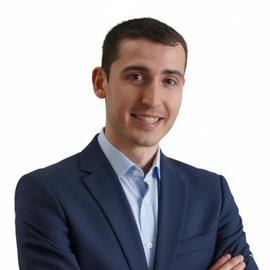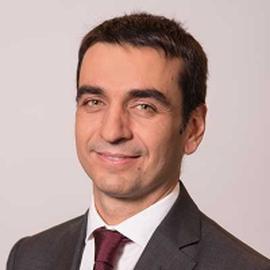Resumen
Graph layout problems are a family of combinatorial optimization problems that consist of finding an embedding of the vertices of an input graph into a host graph such that an objective function is optimized. Within this family of problems falls the so-called Two-Dimensional Bandwidth Minimization Problem (2DBMP). The 2DBMP aims to minimize the maximum distance between each pair of adjacent vertices of the input graph when it is embedded into a grid host graph. In this paper, we present an efficient heuristic algorithm based on the Iterated Greedy (IG) framework hybridized with a new local search strategy to tackle the 2DBMP. Particularly, we propose different designs for the main IG procedures (i.e., construction, destruction, and reconstruction) based on the trade-off between intensification and diversification. Additionally, the improvement method incorporates three advanced strategies: an efficient way to evaluate the objective function of neighbor solutions, a tiebreak criterion to deal with “flat landscapes”, and a neighborhood reduction technique. Extensive experimentation was carried out to assess the IG performance over state-of-the-art methods, emerging our approach as the most competitive algorithm. Specifically, IG finds the best solutions for all instances considered in considerably less execution time. Statistical tests corroborate the merit of our proposal.
Publicación
European Journal of Operational Research

Doctor en Inteligencia Artificial
Sergio Cavero nació en Madrid (España) el 24 de septiembre de 1997. Se graduó en Ingeniería del Software por la Universidad Politécnica de Madrid en 2019. Durante sus estudios de grado realizó una estancia en la Universidad de Bradford (Reino Unido). Además, fue galardonado en dos ocasiones con la Beca de Excelencia de la Comunidad de Madrid, así como con el premio al Mejor Proyecto Fin de Carrera. Posteriormente, realizó un Máster en Inteligencia Artificial en la misma universidad (UPM) obteniendo los premios al Mejor Expediente Académico (‘Premio José Cuena’) y al Mejor Trabajo Fin de Máster. Sus resultados académicos le permitieron ser beneficiario de una de las ‘Ayudas para la Formación de Profesorado Universitario (FPU)’, financiadas por el Gobierno español. Actualmente realiza su tesis doctoral en la Universidad Rey Juan Carlos, dirigida por los profesores Abraham Duarte y Eduardo G. Pardo. Sus principales intereses de investigación se centran en la interfaz entre las Ciencias de la Computación, la Inteligencia Artificial y la Investigación Operativa. La mayoría de sus publicaciones tratan sobre el desarrollo de procedimientos metaheurísticos para problemas de optimización modelados por grafos.

Catedrático de Universidad
Mi carrera investigadora se ha centrado en el desarrollo de nuevos algoritmos y técnicas de Inteligencia Computacional (metaheurísticas) y su aplicación a diferentes problemas en Ciencia e Ingeniería desde que me incorporé a la Universidad Rey Juan Carlos (URJC) en el octubre del año 2000.